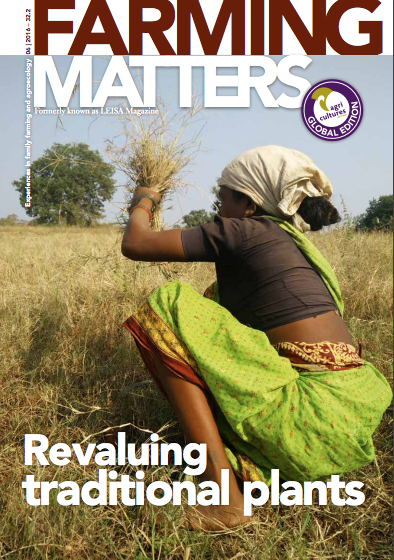Promoting traditional plants and foods must go hand in hand with acknowledging, respecting and remunerating custodians of their traditional resources and knowledge. Kylie Lingard provides some ideas for how the nascent ‘bush foods’ industry in Australia can become fair for Aboriginal Australians.

The commercial potential of native plant foods in Australia (‘bush foods’) has boomed over the past 50 years. Markets are growing for around 15-20 species, including macadamia, lemon myrtle and Quandong. There is room for everyone involved, including researchers, traders, manufacturers and consumers, to better recognise and respect the role of Aboriginal peoples as custodians of their traditional resources and associated knowledge.For Aboriginal peoples, the remote desert represents a cultural, nutritional and medicinal lifeline. Native plant and animal species feature in important songs, stories, ceremonies and trade. Wild harvesting of native plants is a way to practice and pass on knowledge that has sustained species and peoples for millennia. Customary laws regulate the use of, and the knowledge associated with, these plants. Compliance with these is core to Aboriginal culture and wellbeing.
The emerging industry relies on Aboriginal knowledge, documented by researchers since colonisation. Valuable knowledge includes plants that are safe to eat, preferred growing conditions, and harvest and post-harvest techniques. This knowledge, often published without consent, would otherwise take years to obtain.
Mainstream commercial interest creates an economic opportunity for Aboriginal peoples, but their capacity to realise these is constrained by the impact of desert weather on wild harvest yields, and limited access to land, water, technology, training, buyers, finance, transport, and business advice. On top of these practical challenges is limited legal support. Key issues include the prioritisation of horticultural production over wild harvest, which may exclude women harvesters, and the lack of requirement for people to obtain traditional custodian consent prior to development and share profits with the peoples whose knowledge is being used.
‘Business as usual’ approaches to the development of new species are likely to prolong these inequities. This underpins the call by a group of remote Aboriginal women for a set of commercial principles based on respect and support for Aboriginal interests (read more). Complementary legal measures might help level the commercial playing field. They could include a timelimited right for Aboriginal peoples to exclusively develop species not yet commercialised, and mechanisms to ensure Aboriginal peoples with a cultural connection to a species receive royalties from its commercialisation. An ongoing conversation amongst people involved in the industry would likely generate more ideas to help markets for new species develop in a fair and equitable way – one that fairly acknowledges, respects and remunerates Aboriginal peoples’ relationships and contributions to bush food.
Kylie Lingard (klingar2@une.edu.au) is a researcher at the University of New England, Australia. She explores strategies to support the interests of Indigenous peoples in the commercialisation of traditional plant foods.

